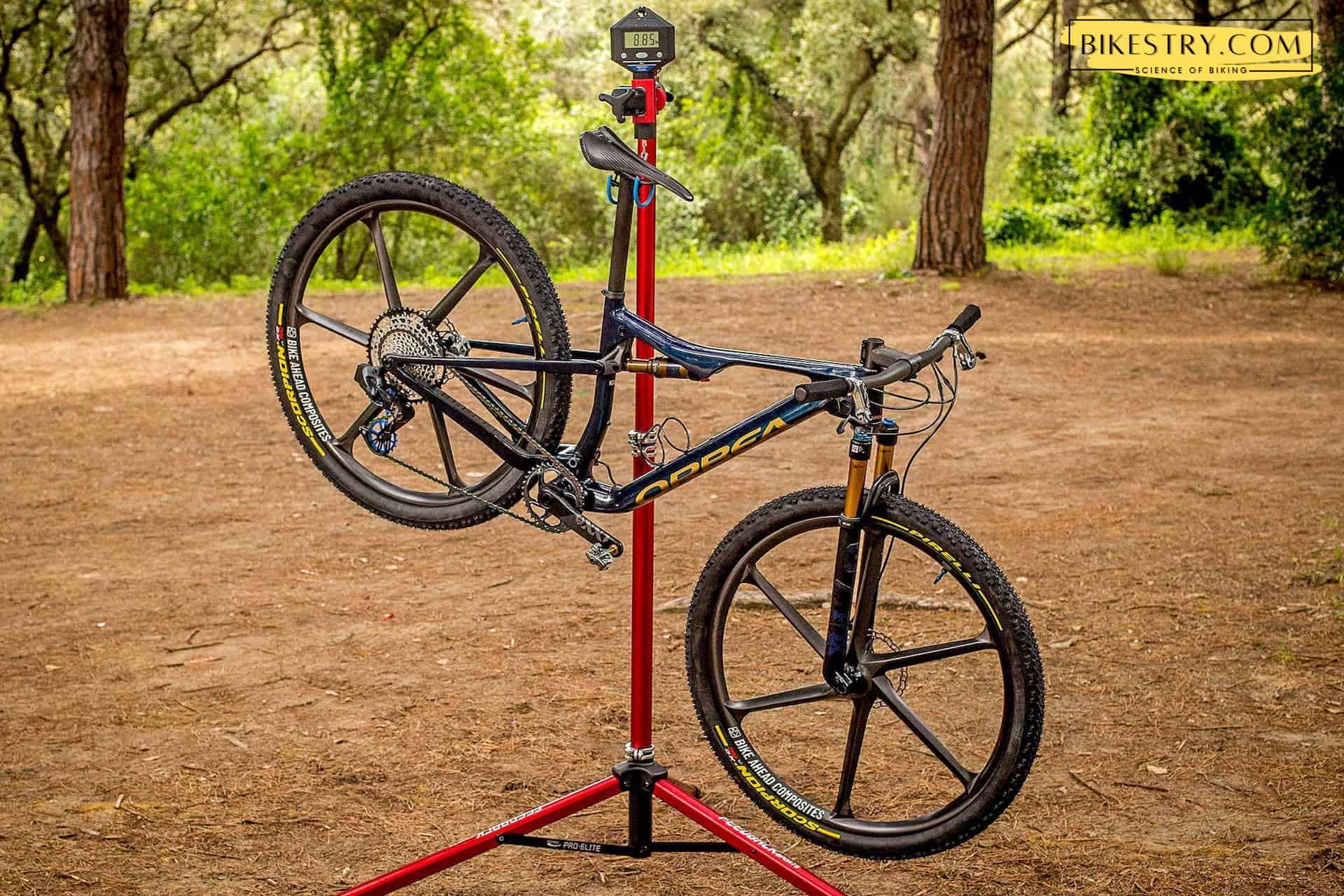Lose The Weight, Gain The Speed: Everything You Need to Know About Mountain Bike Weight
Is mountain bike weight really important? These are questions that many people ask too late, or even after they have purchased a mountainbike.
This is because no one can think about mountain bike weight until they have actually been on the bike. Even better, you had interaction with other mountain bikers where the topic of bikeweight is currently on the stove.
Don’t worry about it, we already know everything about mountain bike weight.
Why are Mountain Bikes So Heavy?
This is the most popular question. It stems from the fact that mountain bikes can be quite heavy. A mountain bike is not the same as a road bike. The terrain on a mountain bike is smooth and the only obstacles are the tarmac bumps. A mountain bike is lighter than a fat tire bike.
Mountain bikes are heavy because of the off-road trails they must endure. Mountain bikes require heavy wheels that can withstand bumps on rocks, trees, and even mud, but still be able to ride safely. These same wheels must also be able to handle the fast gears that are common on these difficult trails.
The fork must be extremely resilient and hold suspension in full-suspension or hardtail bikes. A bike fork that breaks when you hit something hard is not what you want. You will need to be able to carry more weight when using a studier fork.
Mountain bikes require a stronger drivetrain, which can make it difficult to remove excess weight.
Although manufacturers are trying to replace heavy steel with lighter carbon fiber, the
frame still carries some weight. It is decreasing with time, however, unlike the rest.
How Much Do Mountain Bikes Weigh Anyway?
Mountain bikes weigh between 24 and 32 pounds. Mountain bikes can weigh anywhere from 24 to 32 pounds depending on their weight. We have all of them covered below.
Mountain Bike Type
You are probably aware that there are two types mountain bikes: full suspension and hardtail. The weight range will depend on the model you choose.
Hardtail bikes are lighter and more stable than full-suspension bikes. They don’t require suspension at the front wheel, they are therefore lightweight.
Full-suspension bikes, on the other hand, require both front and back suspensions, which adds weight. Full-suspension bikes also have a larger frame, making them heavier.
Why then is the full-suspension bike more expensive and most preferred if it is heavier?
Full-suspension is heavy but has all the benefits of a mountain bike.
It is also more comfortable because of the shock-absorbing abilities of both wheels. It can travel bumps and blocks with no discomfort. You will feel less tired and can ride longer and faster. The bike is also a great option for rough trails and other challenges.
Why would one consider a hardtail mountain bike?
Because it is lighter, cross-country racers will always choose a hardtail mountain bike. Their road conditions are suitable for the bike, making speed, which is characteristic of lightweight bikes, the priority.
- Material
Mountain bikes are heavy because of the materials they are made from. Steel bikes weigh more than aluminum, which is lighter than carbon fiber. These are the materials that make up the
frame or a combination of two.
Some bikes can be run on aluminum frames and steel forks, which reduces the weight. Firm nature.
The more you invest in a mountain bike, the lighter it should be. This is because more expensive bikes are designed from expensive material, which, despite being lightweight, is very strong and sturdy. Such materials include aluminum and carbon fiber.
Although fat tires may still be used, the wheels are made up of bikes with lighter tires.
Does It Matter Having a Lighter Mountain Bike?
Yes. A lightweight mountain bike will allow you to ride faster than a heavier bike. Mountain bikers don’t often use steel frames bikes.
A light mountain bike will allow you to ride faster and more comfortably. A light bike can help you get out of any binds in the mud.
Mountain biking is an adventurous sport. Mountain biking is not possible on all trails. You may need to transport your bike. It doesn’t matter how light your bike is.
So, What Mountain Bike Weight is Suitable for Me?
Do you still have questions about the best bike weight? I can understand your confusion, because even a pound of body weight is important to mountain bikers. Here’s a guide to help you determine your mountain bike weight range.
A hardtail mountain bike will weigh between 24 and 28 pounds. A full-suspension bike, on the other hand, will weigh between 28 to 32 pounds.
If you are racing, you must be at least the minimum weight for each bike. It will be more costly, so make sure you are ready for the investment.
A 32-pound mountain bike is a great choice for casual riders, intermediate riders, and beginners. Are you wondering if the bike will limit the adventures you want? Amazingly, you can still practice your wheelies on the bike if you follow the right routine. What more could you want?
Conclusion
The following information will help you to understand mountain bike weight. Mountain bike weight is important to bikers. Manufacturers are working to reduce the weight while keeping you safe.

